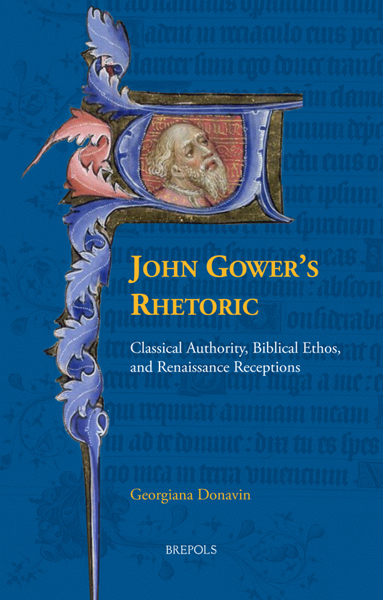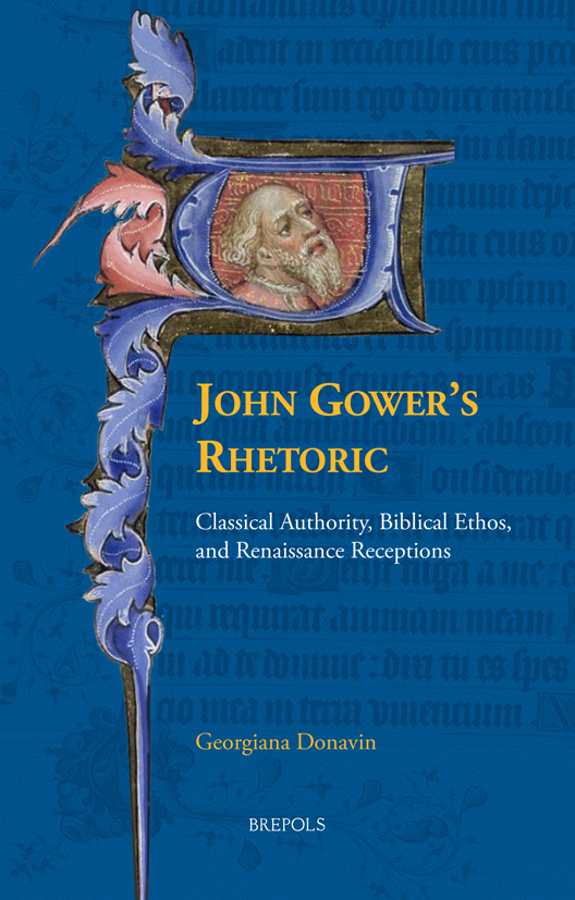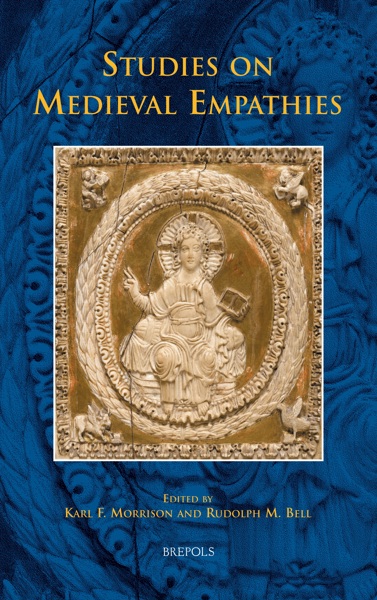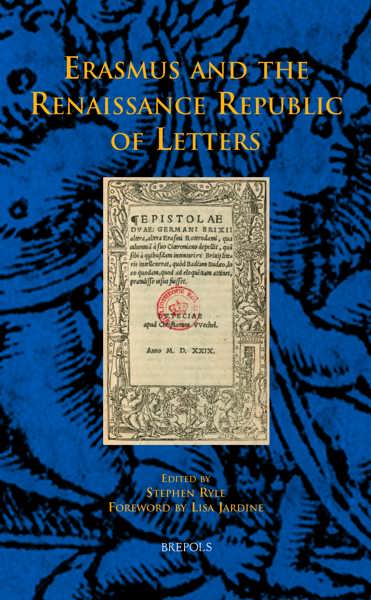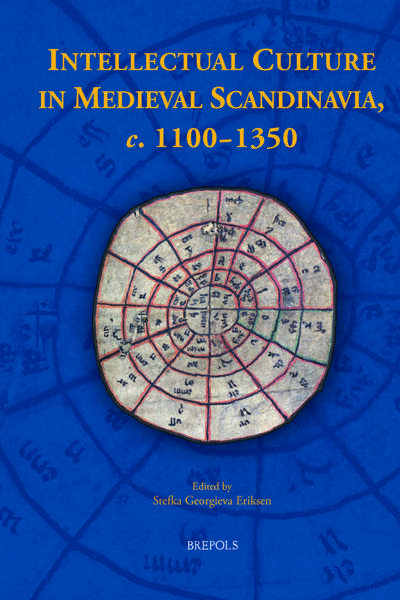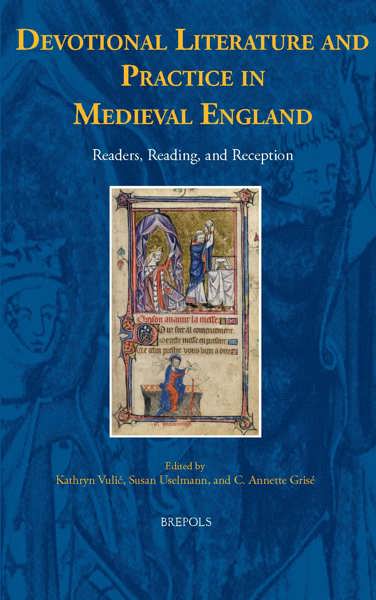
John Gower’s Rhetoric
Classical Authority, Biblical Ethos, and Renaissance Receptions
Georgiana Donavin
- Pages: 432 p.
- Size:156 x 234 mm
- Illustrations:6 b/w, 5 col.
- Language(s):English
- Publication Year:2023
- € 120,00 EXCL. VAT RETAIL PRICE
- ISBN: 978-2-503-59577-1
- Hardback
- Available
- € 120,00 EXCL. VAT RETAIL PRICE
- ISBN: 978-2-503-59578-8
- E-book
- Available
Explores the classical and medieval rhetorical traditions that informed Gower’s craft, the biblical personae through which the poet achieved his rhetorical aims, and the Renaissance publishers, teachers, and authors who valued and imitated his strategies for composition.
“This study of a range of personae, “voices,” registers, and genres that John Gower adopts--all found in the capacious category of “rhetoric”--is a magisterially conceived and literarily sensitive summa, tracking those notions through a wide span of Gower’s considerable oeuvre in his three languages (a very proper French, a generally classical Latin, and a distinctively unusual dialectically hybrid English), with particularly welcome attention to his French lyric cycles and uses of the epistolary form.” (Andrew Galloway, in The Medieval Review, 3/2/2024)
"...Donavin’s book represents a persuasive examination of medieval rhetoric and the crucial ways in which it builds Gower’s authorial voice. For Middle English scholars in particular, Donavin book’s offers an insightful and valuable study of Gower’s trilingual poetry as intricately linked bodies of text, characterized by interlingual resonances based on rhetoric and shared intellectual influences." (Ruen-chuan Ma, in Speculum, 100/1, 2025, p. 236) "The book itself is a mammoth effort. Its 393 pages offer new translations of poems, provide readings of scribal culture and textual transmission, respond with clarity and generosity to an astounding array of work in the field ([Donavin] really has read everything, and almost everything finds a place in her arguments), and present new approaches to Gower’s work that are revelations in themselves. (...) This book feels both plenus and plein, replete and complete." (Stephanie L. Batkie, in Journal of English and Germanic Philology, 124/2, 2025, p.232)
Georgiana Donavin is professor of English at Westminster College in Salt Lake City, Utah. She is the author of Incest Narratives and the Structure of Gower’s Confessio Amantis, Scribit Mater: Mary and the Language Arts in the Literature of Medieval England, and several articles on Gower’s poems and medieval rhetoric. She is co-director of The Gower Project, a digital humanities initiative.
This is the first book-length study in decades to offer in-depth readings of a variety of late medieval poems across Gower’s trilingual corpus. Identifying Gower’s rhetorical cornerstones in Aristotelian pathos, the theology of the Word, and the execution of a plain style, it provides fresh interpretations of poems in Latin, French, and Middle English that arise from an enhanced understanding of Gower’s literary methods. It explores the classical and medieval rhetorical traditions that informed Gower’s craft, the biblical personae through which the poet achieved his rhetorical aims, and the Renaissance publishers and authors who valued and imitated his strategies for composition. Gower adapted his rhetorical theory from the principles of Aristotelian texts, Augustinian theology, exemplars of Ciceronian style, and the dictates of various artes poetriae; from the latter, John of Garland’s Parisiana Poetria is especially important for outlining practices of Marian rhetoric. Modelling virtuous female speakers on the Virgin and prophetic narrators on John the Baptist and John the Evangelist, Gower gave extra-scriptural voice to members of the extended Holy Family and in so doing, achieved unimpeachable expressions inside classically informed structures of discourse. The epistolary structure, proceeding from Ciceronian rhetoric and the artes dictaminis, is one among Gower’s favoured rhetorical forms for projecting singular voices. His straightforward, reiterative style in Middle English and his virginal speakers compelled Renaissance publisher Thomas Berthelette and celebrated authors Ben Jonson and William Shakespeare to praise Gower’s rhetoric in prefaces and imitate it on the stage.
List of Illustrations, Acknowledgements, Abbreviations
Introduction
Chapter One. Gower’s ‘Rethorique’
Chapter Two. My Name is John: Biblical Ethos and Apocalyptic Narrative
Chapter Three. Virgo Bona Dicendi Perita: The Good Maiden Speaking Well
Chapter Four. Epistles and Rhetorical Experimentation, Part I: Contexts and Practices
Chapter Five. Epistles and Rhetorical Experimentation, Part II: Music and Letters in the Trentham Manuscript
Chapter Six. The Hortus Conclusus in Gower’s Poems
Coda. Renaissance Receptions of Gowerian Repetitio
Bibliography
Index
